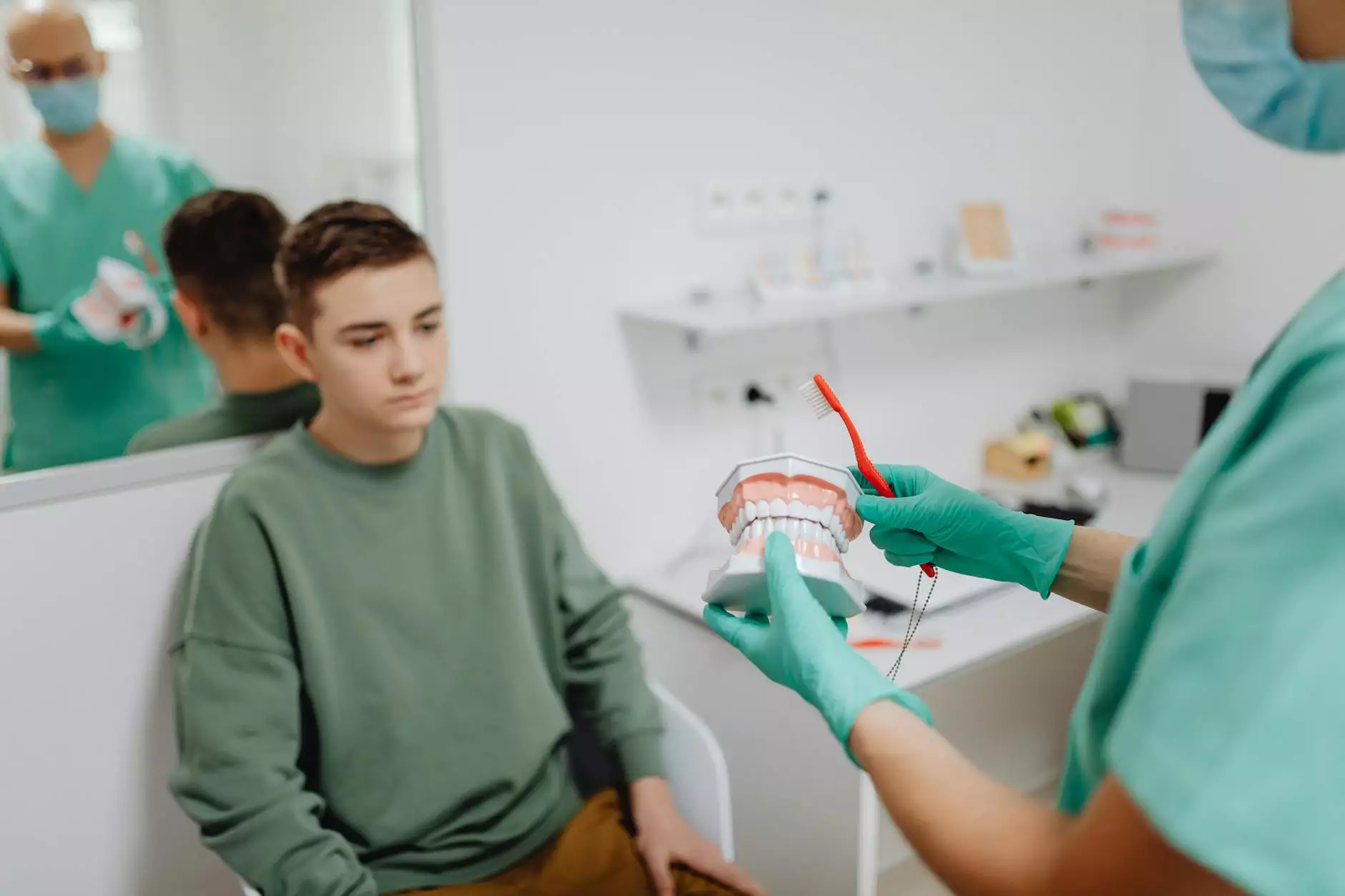Understanding Swollen Legs: Causes, Treatments, and Solutions

We often take our legs for granted, relying on them to support our daily activities without much thought. However, when we experience discomfort or swelling, it can raise concerns and prompt questions like, "Why is my leg swollen?" Understanding the underlying causes and exploring the available treatment options can empower individuals to take control of their health. In this article, we will delve deep into the world of leg swelling, examining the potential causes, symptoms, and effective treatments.
What Causes Leg Swelling?
Leg swelling, or peripheral edema, occurs when excess fluid accumulates in the tissues of the legs. This condition can arise due to various factors, ranging from mild to serious. Below are some common reasons why your leg may be swollen:
- Injury: Trauma to the leg such as fractures, sprains, or strains can lead to swelling.
- Infections: Infections in the skin or soft tissues can cause inflammation and fluid buildup.
- Venous Insufficiency: When veins fail to properly return blood to the heart, it can lead to increased pressure and fluid leakage.
- Heart Failure: Insufficient pumping ability of the heart can cause fluid to accumulate in the legs.
- Liver Disease: Conditions affecting liver function can disrupt fluid balance, resulting in swelling.
- Kidney Disease: Impaired kidney function can lead to fluid retention and swelling in various parts of the body, including the legs.
- Medications: Some drugs, particularly anti-inflammatory medications and those for diabetes, may cause edema as a side effect.
- Pregnancy: Hormonal changes and increased blood volume during pregnancy often lead to swelling in the legs and feet.
- Prolonged Sitting or Standing: Sitting or standing for extended periods can impede circulation, causing fluid accumulation.
- Dietary factors: High sodium intake can lead to fluid retention and swelling.
Symptoms Associated with Leg Swelling
Swelling in the leg may be accompanied by various symptoms, which can provide clues to the underlying condition. Common symptoms associated with swollen legs include:
- Pain and Discomfort: Swelling may cause pain, tenderness, or a heavy sensation in the affected leg.
- Changes in Skin Color: The skin over the swollen area may appear red, shiny, or stretched.
- Warmth or Heat: The swollen leg may feel warmer to the touch compared to the other leg.
- Difficulty Walking: Severe swelling can impair mobility and make walking uncomfortable or challenging.
- Fluid Leakage: In some cases, blisters or weeping from the skin may occur due to extreme swelling.
When to Seek Medical Attention?
In many instances, leg swelling is benign and can be treated with home remedies. However, there are specific scenarios where you should seek medical advice:
- Unexplained Sudden Swelling: Sudden and severe swelling can indicate a serious condition such as a blood clot.
- Shortness of Breath: Accompanied by leg swelling, this may signal heart failure or a pulmonary embolism.
- Chest Pain: This symptom, along with leg swelling, warrants immediate attention due to the risk of serious cardiovascular issues.
- Persistent Swelling: Prolonged swelling that doesn’t resolve with home treatment should be evaluated by a healthcare provider.
- Signs of Infection: Fever, chills, or an increase in warmth at the swelling site requires immediate evaluation.
Diagnosis of Leg Swelling
Understanding the root cause of leg swelling is critical for effective treatment. Healthcare providers typically start with a comprehensive evaluation, which may include:
- Medical History: Your doctor will inquire about your symptoms, medical history, and any medications you are taking.
- Physical Examination: A thorough examination of the swollen leg will help assess the extent of swelling and its tenderness.
- Imaging Tests: X-rays, ultrasounds, or MRIs may be used to identify underlying conditions such as clots or structural issues.
- Blood Tests: These tests can help assess kidney and liver function, as well as detect infections and other systemic issues.
Treatment Options for Swollen Legs
The treatment for leg swelling greatly depends on the underlying cause. Here are some common approaches:
Home Remedies
For minor swelling due to injuries or prolonged sitting, consider the following home remedies:
- Rest and Elevation: Rest the leg and elevate it above the heart to facilitate fluid drainage.
- Compression Stockings: Wearing graduated compression stockings can help reduce swelling and improve circulation.
- Cold Packs: Applying cold packs can reduce swelling and provide relief from discomfort.
- Physical Activity: Gentle exercises like walking or ankle pumps can stimulate blood flow and reduce swelling.
- Hydration: Drinking ample water can help flush out excess sodium and reduce fluid retention.
Medical Treatments
When leg swelling is a symptom of an underlying health issue, medical interventions may be necessary, including:
- Diuretics: Medications that help the body eliminate excess fluid.
- Antibiotics: If an infection is the cause, antibiotics may be prescribed.
- Medication Adjustments: Reviewing and potentially altering medications that may contribute to swelling.
- Physical Therapy: For recovery and strengthening of the affected leg, especially after a serious injury.
Prevention of Leg Swelling
While not all swelling can be prevented, there are effective strategies to minimize the risk:
- Maintain a Healthy Weight: Reducing excess weight alleviates pressure on the legs.
- Stay Active: Engage in regular physical activity to promote circulation.
- Stay Hydrated: Adequate fluid intake helps maintain proper fluid balance.
- Limit Salt Intake: Reducing sodium can help prevent fluid retention.
- Wear Comfortable Footwear: Supportive shoes can reduce strain on legs and feet.
Conclusion
Experiencing leg swelling can be concerning, especially when wondering, "Why is my leg swollen?" Understanding the potential causes, symptoms, and treatment options is crucial for addressing the issue effectively. If you find yourself experiencing persistent or severe leg swelling, it’s imperative to consult a healthcare provider for accurate diagnosis and targeted treatment.
At Truffles Vein Specialists, our team of experienced vascular specialists is dedicated to providing comprehensive evaluations and personalized treatment plans for leg swelling and related conditions. Don’t let swelling hold you back—take the first step toward better health today!









